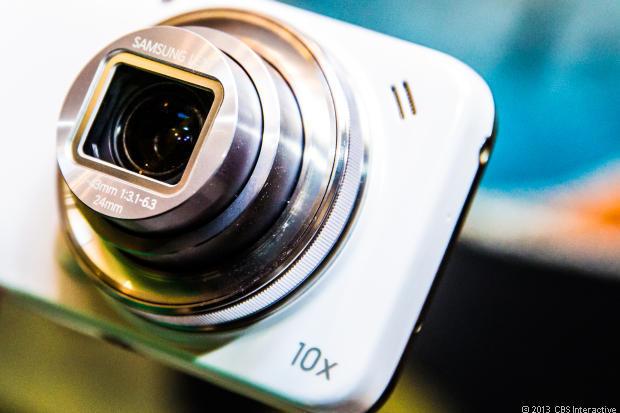
Smartphones and their cameras seem to be an important topic for me to visit this week. Yesterday I discussed how important features in a camera were to me, because it seemed that the more features that were offered in a stock camera application, the better the experience was. But when it comes to the camera itself, sometimes it seems that you can have too many features that don’t prove to be as useful.
Let’s take a look at some of the more prominent examples in our industry right now. The HTC One is a prime example of people either loving or hating the features that the camera touts: that whole UltraPixel thing. Some people consider it a gimmick, others consider it forward technology. As for me? I don’t really have a problem with it. I was pleasantly surprised that the 4-megapixel camera that the HTC One’s camera uses was able to take such great photos. When I first heard that the phone was going to use a 4-megapixel camera, I was awfully dismayed. Even the whole UltraPixel nonsense couldn’t sway me. Four megapixels is four megapixels, and everybody knows that the more megapixels you have the better the photo will be.
Or maybe not, but that’s what we had been led to believe at the time. Still, the UltraPixel camera on the HTC One isn’t a surefire winner with everybody who uses it. Some people still aren’t convinced that the camera is decent enough to replace your basic point-and-shoot. So, in the case of the HTC One and its UltraPixel camera, for some people it may seem that the UltraPixel doesn’t really matter in the end.
Our next example is a little different. Instead of using a new technology that nobody has heard of, this device went with old technology that looks and works like your typical digital camera: the Samsung Galaxy Zoom. Thus far, the Galaxy Zoom hasn’t exactly impressed many. The device uses optical zoom, and from the back of the device it looks like almost exactly like a point-and-shoot. Since smartphones are becoming many people’s preferred gadget for snapping photos, it makes sense to try and tailor to those who would rather use a regular digital camera. Why not slap one of those puppies on the back of a smartphone and call it a day? Unfortunately, it doesn’t seem like it’s all that simple. The lack of true success for the Galaxy Zoom might have been because it was on a one carrier exclusive, but even if it was offered across the board I think that the Galaxy Zoom left much to be desired.
Still, we have the next generation Galaxy Zoom coming up here soon, which doesn’t look too bad. Also, it seems that HTC wants to get a slice of that action, as they recently teased that optical zoom should be coming to their line-up sometime soon. Not a bad idea, but before I can officially agree that HTC is making a solid move by incorporating optical zoom in their smartphones, there’s one little thing that I would like to request from them.
Adjust the lens according to the size of the phone, not the phone according to the size of the lens.
Smartphones are already getting pretty big, but at least, for the most part, they’re big and thin. Once you make them big and clunky, people start to lose interest. That was my main issue with the Galaxy S4 Zoom. The specs weren’t that great in the rest of the phone, but I think I could have overlooked that if the phone was at least wieldy. But the phone was still large, and it added quite a bit of thickness on the back of it. The size of the lens and the optical zoom is rather large on the Zoom, so it makes sense that you would need extra room to store it all. In the end, though, it just doesn’t work that well as a product that sells well to people.
If HTC wants to sell a phone with optical zoom, they’re going to have to one up Samsung and try to keep a slim design as much as possible.
I would like optical zoom on my phone. I tend to use my digital camera for more important events because of the optical zoom, but I certainly wouldn’t be against using my smartphone to completely replace the camera once they get a little better. Optical zoom in smartphones could be just the thing to help me completely eliminate toting that extra gadget around with me when I need it. Still, the design is still a key aspect of this addition; the Galaxy Zoom didn’t work out that great last year for a reason. Perhaps the Galaxy S5 Zoom will be different with its slimmer design, but I still think that things could get better.
Readers, what are your thoughts on HTC adding optical zoom to their smartphones? Do you think it will work out better for them than UltraPixel cameras? Let us know your thoughts in the comments below!
Images via CNet, Android Guys